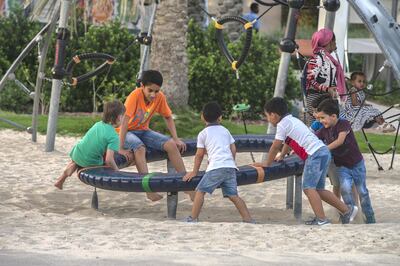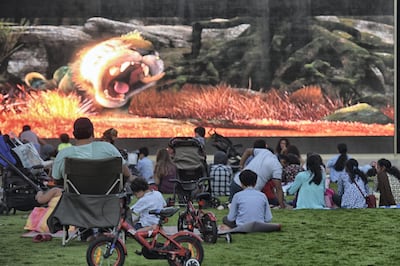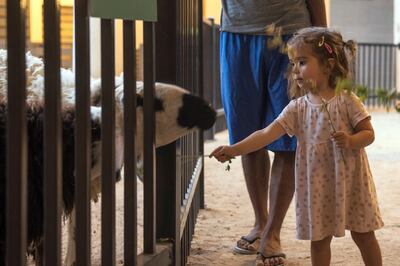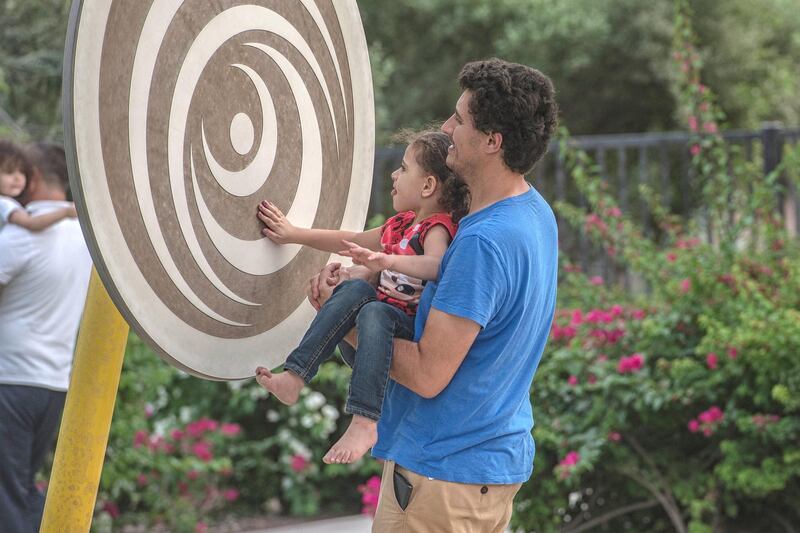Quality time without someone glued to a gadget has become something of a rarity in this digital age. In our constant quest to consume information online, we have become less observant of the world around us. For instance, children, unfortunately, are more likely to learn about plants or the animal kingdom from a screen than a walk outdoors.
American author and journalist Richard Louv said it best when he coined the term nature deficit disorder in his 2005 book Last Child in the Woods, outlining how people, specifically children, are spending less time outdoors. He argued that it makes them feel alienated from nature, and more prone to negative moods such as stress and anxiety, reduced attention span and increased obesity.
Experts agree. A research article titled Residential Green Space in Childhood is Associated with Lower Risk of Psychiatric Disorders from Adolescence into Adulthood, published last year in the journal Proceedings of the National Academy of Sciences of the United States of America, concluded that exposure to green spaces during childhood is associated with better mental health, supporting efforts to better integrate natural environments into urban planning and childhood life.
Time spent in natural surroundings relieves mental fatigue, which in return relieves inattentiveness, irritability and impulsiveness – recognised by psychologists as precursors to violence. Parks, more specifically, provide spaces and opportunities for unstructured play and leisure for all ages, activities that boost cognitive behaviour and improve physical health.

With regard to screen time, the norm used to be none for children under 2, and up to two hours for children and teenagers. However, the American Academy of Pediatrics has since updated its guidelines to match the realities of today’s world.
The academy notes that it is practically impossible to enforce a strict two-hour daily limit on school-age children. Instead, it recommends that parents place a sensible limit, and outlines that it’s more important to examine the big picture.
Despite these recommendations, the Centers for Disease Control and Prevention (CDC) reports that children between the ages of 8 and 10 spend an average of six hours per day in front of a screen, those in the 11 to 14 age range spend an average of nine hours, and teenagers from 15 to 18 an average of 7.5 hours.
To make matters more challenging, the Covid-19 pandemic brought its own set of limitations. With everyone confined indoors and with most public and outdoors spaces closed for about four months, us, and our children, were left with only a handful of feasible activities.
A survey conducted by ParentsTogether, a family-centred website, produced alarming results. It noted that the amount of time children spent in front of a screen increased by a staggering 500 per cent during the pandemic, with 30 per cent of the 3,000 parents surveyed confirming that their children were getting four hours or more of additional non-school-related screen time on a daily basis.
So how can we – as parents, caregivers, teachers and even policymakers – prioritise giving our little ones outdoor time on a regular basis?
Give children ‘phygital’ experiences

We cannot deny the realities of today’s world: we are living in a digital era, and our children are becoming increasingly dependent on screens. Rather than ignoring or fearing the fact that, as digital natives, our children will turn to a screen to play, learn and even perform daily tasks, we must instead learn to embrace the positives of modern technology.
One way to do that is by providing children with “phygital” experiences, which blend physical and technological experiences effortlessly, creating an immersive activity that merges the best of both worlds. A cinema in the park experience, for instance, or using a physical toy or experience with digital interaction, ideally in the great outdoors.
Take advantage of the cool weather to explore nature
With the weather cooling down across the UAE, restrictions eased, and parks reopening, families can use the opportunity to step outside.
Set a goal of an hour per day and use green spaces, where children can play and learn in equal measure, to educate, enrich and explore.
Aside from the various health benefits, urban parks allow people to unplug and connect with nature. They offer children a sense of place and belonging as an antidote to social alienation.
It increases their motivation to discover different aspects of their world, a penchant for flora and fauna via a botanical garden or petting zoo, perhaps. It also engages them in informal, experiential learning through play, while health-promoting recreational activities improve overall well-being.

Support a curriculum that allows education through recreation
According to the Brec Foundation, research shows that healthier and happier children do better in school, and that education is an important determinant of future health. However, education is not just about lessons within the four walls of a classroom, and many children do not learn exclusively in class.
They need alternative, hands-on learning environments to match their varied learning styles. City parks, greenways, and naturalised school grounds can be a crucial antidote. They can motivate young people to learn through the natural environment (and about it as well), bringing environmental education into the mainstream of state-mandated instructional programmes.
The outdoor environment encourages skills such as problem-solving and assessing risk, while also emphasising emotional and social needs, as well as opportunities for creativity – which are all important components for development.
The more exposed children are to the outdoors, the better their health, social functioning, character and skills. In addition, educational tours have been proven to be beneficial to teachers, overall improving job satisfaction and personal well-being.
Rasha Kablawi is head of corporate affairs and communications at Umm Al Emarat Park, which is equipped with features such as an amphitheatre, open-air cinema, botanic garden, animal barn and petting zoo, and a 1.2-kilometre green jogging track






